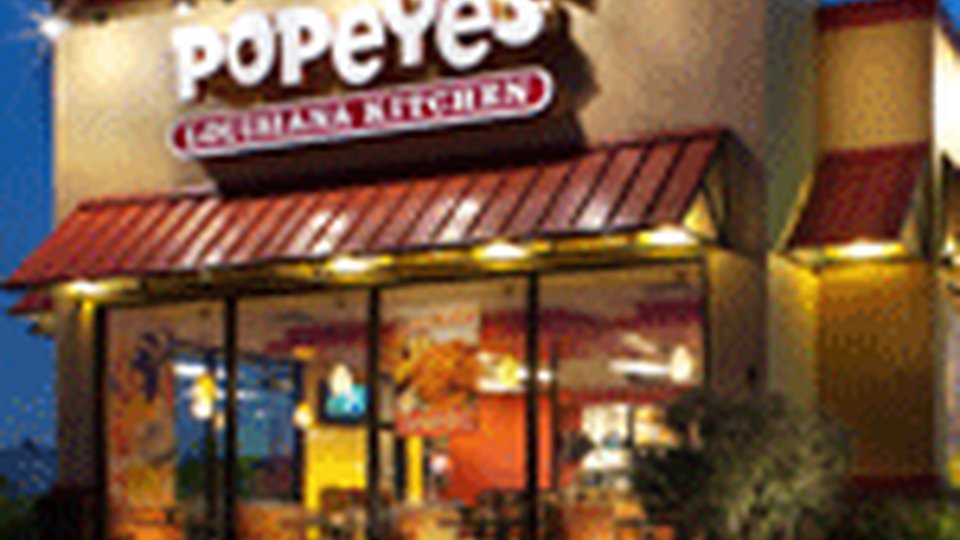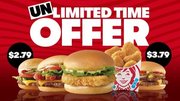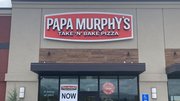Article
Popeyes franchisee thrives in inner city
Brodersen Management succeeds in market turnarounds by focusing on operations and investing in its staff.

February 9, 2010
*Click here to view a slideshow of images from the grand re-opening.
John Brodersen saw the potential for the Popeyes Louisiana Kitchen chain when he got his first job with the brand in a Chicago store more than 20 years ago. He made the most of that potential and is now one of Popeyes' top five franchisees.
Recently, he returned to his roots with the purchase of six franchised locations in the Chicago market, including the store where he got his start. Last week, he celebrated the grand re-opening of the last of those restaurants, all of which he intends to return to profitability.
"I knew the potential of these stores because I had worked in them," he said. "That's why I became a Popeyes franchisee, because I saw what these stores could do in sales in 25 years."
Brodersen said many franchisees might be reluctant to take over the inner-city stores in Chicago, but he has made a specialty of reviving such markets. In 1999, he took over several struggling Detroit Popeyes stores and tripled their annual sales volume in five years.
Brodersen Management now owns 35 restaurants in four markets, including Milwaukee and Puerto Rico.
Market revival strategy
When the Chicago stores came available, Brodersen said he was eager to invest in them in part because he was familiar with the market as well as many of the managers. Although the stores were no longer profitable when he bought them last spring, he is confident they will be.
"It's kind of scary to an outsider," he said. "They might say they're all run down, they're in rough neighborhoods, they're somewhat dangerous, but that's what we do."
Brodersen gutted and rebuilt two of the stores, including the one where he first worked, a location that is now a Popeyes training center. The other four will be renovated in stages over the next year.
His goal has been to keep the stores open and the existing staff, especially the management, employed during the transition. Keeping those managers is part of his turnaround strategy because many of them have been working at those stores for 20 years, he said.
"It's all about operations and running things correctly and trusting in your people and trusting that you can do it," he said.
Employee motivation is key
In each market he has entered, Brodersen has kept as many of the managers and employees as possible. He retrains them to focus on operations and customer service, offering incentives and bonuses as a way to build excitement.
The front line employees participate in weekly performance contests, with prizes from pins to leather coats. The managers receive bonuses based on the stores' quarterly Quality Service and Cleanliness scores. The directors of each market also receive a bonus based on their store managers' performance. Top performers have received new cars or retirement packages.
Brodersen said that investing in his managers and staff is worthwhile because it means his stores succeed.
"I don't mind giving away that money because that in turn propels our organization forward," he said. "In the long run, by paying those bonuses to everybody, I can expand and I can grow. That's more room for them to grow, too. It's a self-perpetuating thing."
Brodersen Management is one of three Popeyes multiunit franchisees that reward their top staff with large bonuses and prizes.
Brodersen sees a direct correlation between the bonus program and his stores remaining at the top of the Popeyes system for QSC scores for the last three years. "It's not because of me; I'm not in there cleaning everything, training everybody, but I instill the excitement about doing it right."
Crewmembers who continue to win the weekly contests at the store level typically advance into management fairly quickly. His top store managers have advanced into serving as directors for the multiunit franchise's four markets.
For example, Georgia Sanders started as a fry cook 18 years ago in one of the Brodersen's Milwaukee stores. Now she has taken on the job of overseeing the Chicago market. Her reward? A new Audi Q7.
"I go to town for people at the top level," he said. His philosophy is "treat the person at the top as a partner." If you treat them right, Brodersen said, they will then run the business right, like it's their business.
"They have a long term stake in it. They feel better about it if you treat them right. If you're constantly harassing them and micromanaging their market, then it doesn't do anybody any good."
Ralph Bower, Popeyes chief operating officer, also sees a correlation between Brodersen's motivational tactics and his stores' success.
"John's specialty is operating in the inner-city environment," he said. "When you look at his ability to attract really high quality people in those markets and really keep them for a long time, that really set him apart from operators who are really challenged by those environments."
Bower said it's not unusual for him to "see the same smiling faces" at each of Brodersen's stores. And it's obvious that even the hourly employees at each of those stores know who he is.
That level of involvement pays off, resulting in Brodersen's being nominated every year for the company's highest award for its operators, the Gold Plate Award.
"John is definitely one of the most aggressive and enthusiastic operators that we have," Bower said. "If you spend a day with him, you can see why he's successful — because of the passion and enthusiasm he has for the business."
 ChatGPT
ChatGPT Grok
Grok Perplexity
Perplexity Claude
Claude








